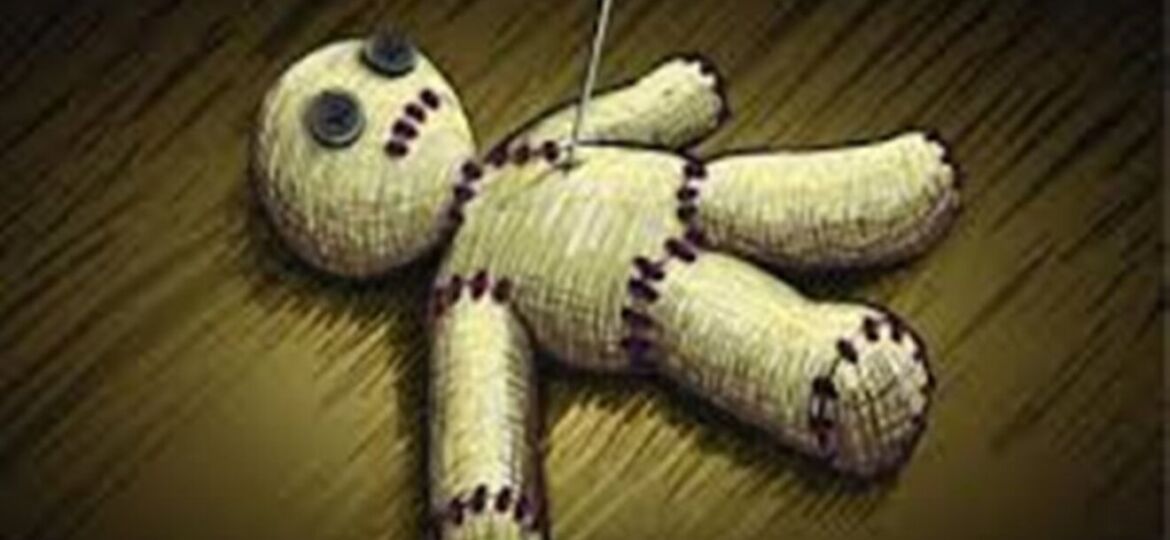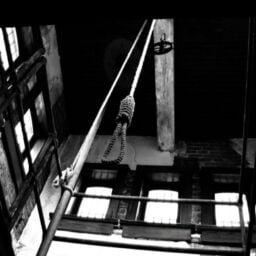
A mass hysteria clutched the city of Bangalore in the nineties, when “Nale-Ba”, a Kannada word that translates ‘to come tomorrow’, was painted outside most homes in Bangalore to ward off a witch. It was believed that a witch came at night and called out to men in the voice of the female members of their family and, if a man answered the door, he would be killed by the witch the following day. But, when the witch saw the “Nale-Ba” sign, she would be befooled to return the next day and the cycle continued. Soon, the story got buried in time and “Nale-Ba” became an April Fool’s joke.
Early this year, again, extremely repulsive news of a highly educated couple from Andhra Pradesh had flashed in the headlines, who had killed both their daughters under the delusion that they had divine powers to revive them later. Both of them were charged with murder under section 302 of the IPC. Denying the charges, they offered an explanation that they did so to improve the health of their children. At the time of their arrest, when the couple was taken for getting a covid test, the accused mother made a strange claim that “she is the Hindu deity, Shiva and gave birth to coronavirus”, thus, refused to get tested. Such bizarre events continue to appear in the news now and then in India.
Witch-hunting is still prevalent and plaguing our modern society, where it is used with a belief that magical remedies can increase life span, improve health or win love, etc. It is an antiquated superstitious practice that involves blaming women for misfortunes by branding them as witches and subjecting them to crimes. It is practised universally across human cultures. The Hon’ble High Court of Orissa in Jitu Murmu v. State of Odisha,[1] made a pertinent remark that mindless practices of witch-hunting are even present in 21st-century society. It was further said that the society in the Vedic era was much philosophically evolved, which can be inferred from verses of texts in the Brhadaranyaka Upanishad, “Asato ma sadgamaya, tamaso ma jyotirgamaya”, meaning a society that emphasised the need for knowledge and freedom from superstition. The Court also underscored the need for central legislation on witch-hunting as the different state laws have been found inconsistent and have ineffective punishments.
The reasons for superstitious practices of witch-hunting can be attributable to cultural or religious beliefs, patriarchy, casteism, ignorance, fear, lack of education and scientific temperament. Oftentimes, it is women, especially those belonging to the lower strata of society, backward and tribal areas are the perpetrators as well as the victims of such kinds of crimes. Personal suffering like poverty or medical issues or family issues like the desire for a male child, etc is the driving forces behind victims that resort to witch-hunting by falsely believing that performing certain superstitious acts will ameliorate their suffering and shower them with good fortunes. They are either propelled by their gullibility or pushed into superstitious traps by their family members or local quacks and self-proclaimed godmen who mislead them.
States like Jharkhand, Odisha, Bihar, tribal areas of Assam, Rajasthan are the epicentres of witch-hunting crimes. Though most of these states have their legislations for combating the said crime but fail to have a restraining effect because of inadequate rigorous punishments. The states where there is no separate legislation for this crime, evoking minor sections of IPC like simple hurt under section 323/324, inducing a person to believe that he or she will be rendered an object of divine displeasure if such person does not do or omits to do an act of the offender, under section 508, etc, do not discourage people as the punishments under these provisions are not rigorous enough. The preparation stage of the crime of witch-hunting is not generally taken cognizance of and hence not made an offence. There is a very limited reportage of witch-hunt cases because of fear and the illusory beliefs of people. Lack of evidence coupled with little to no support from the locals also lets the accused get off the hook easily. Mental torture suffered by the victims of such crimes is also ignored and is not covered by the sections of the present criminal law. Moreover, in cases of death caused because of witch-hunting, the crime records do not show separate statistics of the number of murders or culpable homicides not amounting to murders ascribable to the acts of witch-hunting alone.
Furthermore, such acts of witch-hunting even violate the right to life under Article 21 of the Constitution. The Hon’ble Supreme Court of India, in the case, reported as C. Masilmani Mudaliar vs. The Idol of SwaminathaSwamiswaminathaswami Thirukoil[2] observed that every woman needs to have a dignified and meaningful life that leads to her development by the removal of obstacles and gender discrimination. The court also quoted Article 51-A, clauses (h) and (j) that talk about the fundamental duty “to develop scientific temper, humanism and the spirit of enquiry and to strive towards excellence in all spheres of individual and collective activities” and further held that the State must provide adequate opportunities for the growth of individuals. Then, in the case titled Mrs Sashiprava Bindhani vs. Unknown,[3] the Hon’ble Orissa High Court proposed that the Legislature should table the law to deal with the evil of witch-hunting by pointing that India is a signatory to The Convention on the Elimination of all Forms of Discrimination against Women (CEDAW) which aims to end discrimination against women in all forms and manner. The court also directed the District Administration to make sincere efforts in combating superstitious beliefs among people. In some places, witch-hunting is done in the name of religion. But, the Hon’ble Supreme Court of India in Durga Committee, Ajmer v. Syed Hussain Ali[4] observed that protection under Article 26 of the Constitution of India covers only those practices of religion that are considered as an essential part of it.’ Thus, from this dictum, it can be fairly concluded that the practice of witch-hunting has not been considered an essential part of religious practice. Such superstitious practice under the garb of religious freedom cannot be granted protection under the right to religion in the Constitution.
Although a bill for eliminating witch-hunting in India was introduced in 2016 in the Lok Sabha yet it is still pending. It had a two-fold aim to not only protect and prevent the victims of witch-hunting, especially women from oppression but also provide them with the free legal, medical assistance and rehabilitation of the victims by providing them adequate compensation. It is an exhaustive draft that covers all crimes related to witch-hunting and has made separate and rigorous punishments for each of them. It even highlights the duty of the government in making people aware of witch-hunting crimes and also training the police accordingly. Ergo, all these reasons cumulatively necessitate the drafting of national legislation for preventing the menace of witch-hunting. It is high time that such legislation should be implemented.
Other necessary steps that can be taken to crackdown on witch-hunting can be:
- To identify the rationale behind the commission of such crimes, the reasons for its continued existence in a particular place or community and what can be done to alter the mindset of people.
- Educated natives of the place, Anganwadi workers, doctors, psychologists should be roped in to raise awareness within the masses. In the case of Unknown v. Kali Singh and Others,[5] the Hon’ble Calcutta High Court observed that the responsibility to eradicate ignorant beliefs through education lies on the State. It was further observed that judicial punishment cannot be a solution to prevent the further occurrence of such crime as superstitious beliefs are present in the psyche of people. Only education and awareness can result in the enlightenment and awakening of scientific temper which can constrain further recurrence. If the State fails to deliver on this Constitutional duty then it can lead to the loss of innocent lives.
- Developing scientific temper, analytical and logical abilities should be provided to children studying in primary schools.
- The police should keep a vigil on online as well as offline dissemination of advertisements that promote the offering or soliciting of help by tantriks/ojhas/babas for curing any issues related to physical or mental health. Strict actions should be taken to prevent or block such advertisements.
- Several women who are blamed for various catastrophes and disasters like famines, floods, etc. are ostracised from their communities by categorising them as witches. They are physically and mentally tortured. Hence, timely help must be provided by counselling and rehabilitating them to prevent them from harming themselves by committing suicide as has been observed in several cases.
- A task force consisting of social workers, activists, retired persons from academia, counsellors at block/taluka, village and district level, preferable women must be made under the aegis of the District Administration. They should be given the responsibility of conducting discussions, seminars, workshops, Nukad Nataks to sensitize the masses/target groups against the evils of witch-hunting.
An enlightened and healthy society can be free from absurd notions and superstitious beliefs like witch-hunting by developing scientific temper and humanism as enshrined in the Constitution of India.
Author(s) Name: Molly Tarunima Tagore ( Graduate, Rajiv Gandhi National University of Law, Patiala)
References:
[1] Jitu Murmu v. State of Odisha, On 10 August, 2020.
[2] C. Masilmani Mudaliar vs. The Idol of SwaminathaSwamiswaminathaswami Thirukoil, On 30 January, 1996.
[3] Mrs. Sashiprava Bindhani vs Unknown, On 25 April, 2012.
[4] Durga Committee, Ajmer v. Syed Hussain Ali , On 17 March, 1961.
[5] Unknown vs Kali Singh And Others, On 4 October, 2018.
















